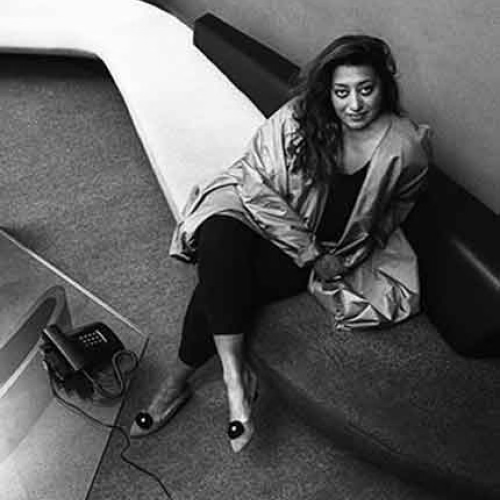From seminars to studios – Meet our Graduate Designers


Despite the lifting of all Covid curbs in England, a new report found that two-thirds of universities are still teaching some courses virtually. Now, many of the UK’s top learning institutions are facing Ofsted-style inspections to audit the quality of teaching. Many students are expressing concern that online teaching is poor, and that they are keen to experience more face-to-face education, which suggests that the benefits of in-person learning have not been replicated digitally.
As these students graduate and enter the professional landscape, they’ll be embarking on the next stage in their educational journey, and the workplace has an essential role to play. We sat down with three of our office interior Graduate Designers, Katie Boc, Maria Popescu and Aaron Sanderson, to discuss their lockdown learning experiences and why they’re already benefitting from place-based development at Peldon Rose.
A degree of upheaval
All three of our Graduate Designers had elements of their studies impacted by the pandemic. Technical Designer Katie is a former Peldon Rose Design Intern who returned to a fulltime role at the end of her degree in 2021. Joining Peldon Rose from Nottingham Trent University is Maria, a Graduate Project Designer in Peldon Rose’s Landlord team, who studied at NTU from 2018-2021, but was only able to celebrate her graduation this year. Aaron studied Interior Architecture at University of Lincoln from 2016-2020, where Covid disruptions impacted his final year of study. Maria shared how this was particularly difficult at the start of the pandemic:
“Universities took a while to adapt when lockdown happened. They were used to doing things in the same way for years and weren’t sure what to do. I didn’t live with people on my course either, so it was hard to know who to turn to.”
Katie, who returned from her internship at Peldon Rose to online tuition added:
“In the first few years of university, we’d have tutorials where you’d show, then talk about your work. It was a great way to share ideas with your classmates and understand how people are tackling different elements of design. You didn’t have the opportunity to collaborate in that way with online tutorials.”
The importance of practical interior design experience
“The nature of an Interior Architecture Degree is very hands-on,” said Aaron, “when you’re face-to-face, you can scribble drawings on a piece of paper and work through it with your tutor, but it’s a lot harder to express your ideas on screen.”
“It’s also much harder to ask questions,” admitted Katie, “I spent a lot of time googling things that I didn’t quite understand, that I could’ve asked a classmate in the university’s design studios that were closed.”
Thinking about how this differs to her time spent in Peldon Rose’s offices in Wimbledon, Katie said the contrast was stark:
“During my internship it was great because you’re constantly exposed to people. If there’s something you’re unsure of, you can quickly ask someone for help, instead of spending time searching for answers online or waiting for an email reply.”
The workplace as a developmental tool
“I’m still in my first role since graduating and I’m still learning so much about Interior design,” said Maria, “but I’m also learning about how companies work, and how to present my ideas in meetings with clients.”
“That’s it,” agreed Aaron, “I’m learning about how businesses are structured, as well as how I should work. It’s so much more than somewhere you come to do a 9-5.”
While companies are still navigating the return to workplace, it’s clear that this isn’t the same experience for all recent graduates. Maria, Katie and Aaron all spoke about former classmates who are yet to step foot in an office. It’s clear then, that the frustrations of online working at university have now transitioned into the world of work for some of the newest members of the workforce. But how can businesses prevent this from happening?
Creating a mutual learning environment
“While we’re all learning so much from the senior designers, I think interns or graduates can teach our mentors a thing or two, too.”
Katie doesn’t just mean soft skills like patience, or offering professional advice, either:
“We can share new ideas, like teaching others how to transform a 2D floorplan and make it 3D using different software to what they’d normally use.”
“Any situation that brings a diverse set of people together is going to spark innovation. People of different ages all have different perspectives and I love watching a group of designers come up with new concepts,” said Aaron.
Adapting to the pressure of the real world
“At university, all our designs were theoretical, which gave you creative freedom without any pressure. It’s great but also nerve-wracking to know that now, our designs are real, and they must work,” said Maria.
“It’s hugely fulfilling though,” adds Aaron, “to see your work come to life through design. It gives you purpose.”
“It’s exciting too, as I’m early enough in my career that I’m still discovering what I enjoy, and what I’m good at,” reveals Maria.
“As I interact with more and more clients,” says Katie, “It’s nice to grow in confidence and to become more and more comfortable sharing your ideas, knowing that you’ve got the support of your colleagues around you.”
Quick fire last round: Favourite place in Sterling House?
Aaron: The design studio on the second floor. It’s the hub of creativity!
Katie: I like the central staircase, and looking at the pictures on our tapestry wall and guessing which picture belongs to who.
Maria: I like the kitchen booths on the ground floor. It’s a nice place to sit and watch others around you while being a bit of a ‘fly on the wall’.
Has our graduates’ enthusiasm has sparked your interest in Peldon Rose? Check out our latest vacancies here.
You may also like

Nurturing the industry's future talent
At Peldon Rose, investing in the future of the design and build industry is important to us, and we’re...

Start your workplace transformation today.
Your workplace holds enormous potential to improve your business performance. Get in touch today, and we will unlock that potential together.






